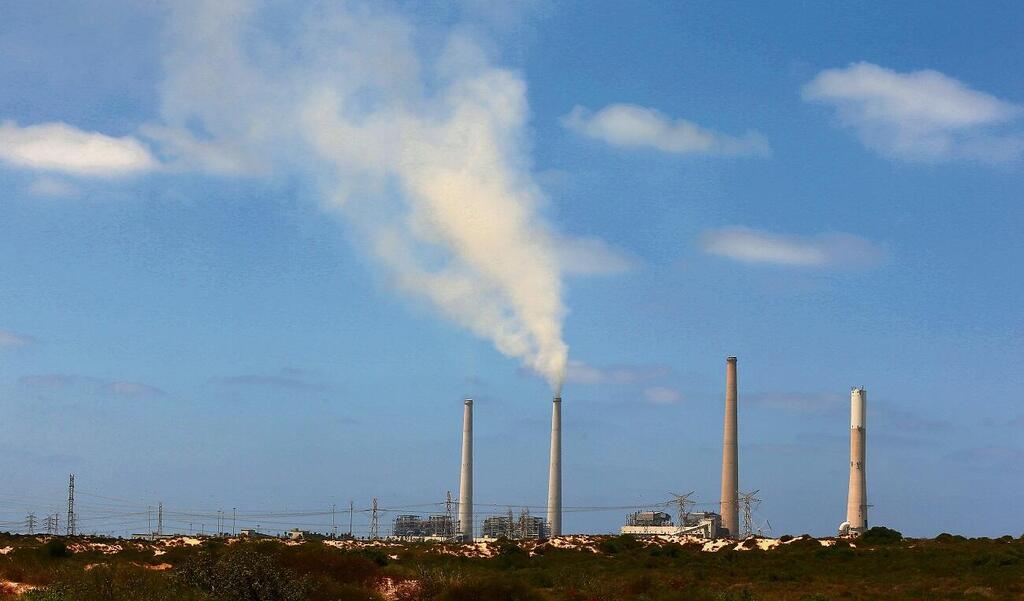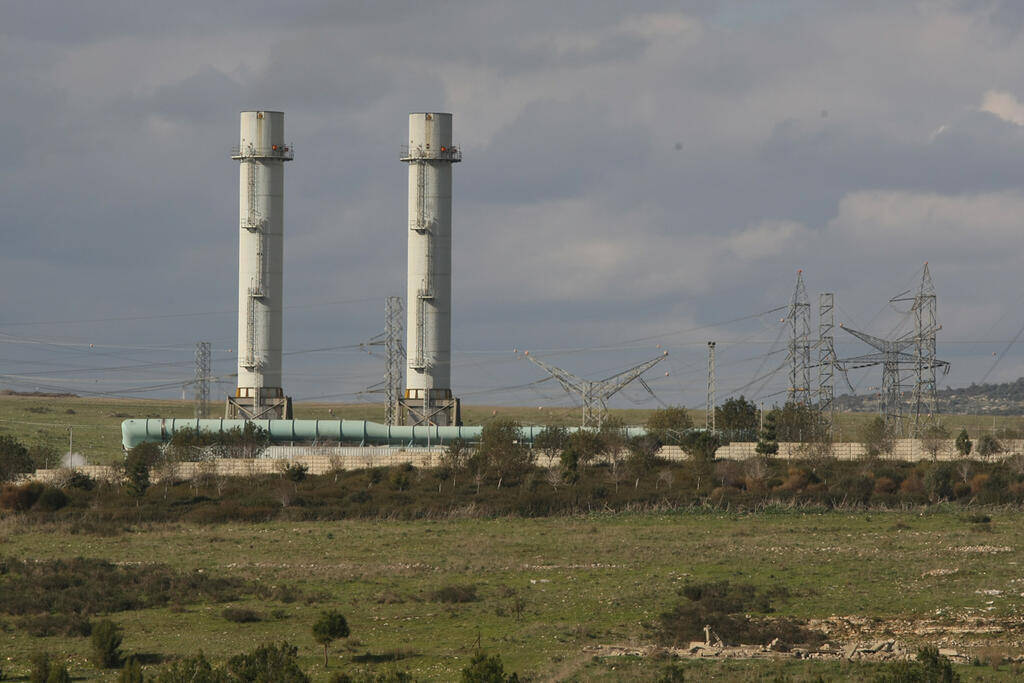While other Western countries are working to reduce emissions, Israel is doing the opposite. A report from the Environmental Protection Ministry's Greenhouse Gas Emissions Registry published on Wednesday reveals that the amount of greenhouse gas emissions in Israel increased during 2022.
More stories:
In addition, Israel did not see a decrease in nitrogen oxide emissions, and the costs arising due to these emissions reached 14 billion shekels per year, with the Israel Electric Corporation topping the list of spenders. This comes after policymakers chose to focus on natural gas as a power source over supporting solar power endeavors.
The Environmental Protection Ministry publishes the emissions register for the 572 largest factories in Israel annually. According to the data presented in the report, the total amount of greenhouse gas emissions in Israel in 2022 increased by 3.5% compared to 2021, reaching 81.1 million tons of CO2.
This is the highest emissions have been in Israel since 2012 and is 1% higher than 2015, when Israel signed the Paris Agreement to combat climate change. This data pushes Israel from its international commitment to reduce greenhouse gas emissions by 27% by 2030 compared to 2015.
The factors contributing to the increase in greenhouse gas emissions are fuel consumption in transportation (an 11% increase in diesel consumption, 4.5% increase in gasoline consumption), and increases in refrigerant gas consumption (7%) and at power stations (2%) due to an increase in electricity production.
The increase in CO2 emissions from the country's electricity production happens due to increased demand and as a result of insufficient production from renewable energy sources and a lack of energy efficiency in the Israeli market.
The Environmental Protection Ministry said that for Israel to meet its 2030 greenhouse gas reduction targets and achieve a zero-emission goal by 2050, it needs to complete legislation of a climate law and approve a greenhouse gas pricing plan that will allow Israel to maintain a competitive, efficient, and less polluting economy.
"The coal pricing law, drafted together with the Finance Ministry, was approved by a government decision in 2021 but has yet to be approved by the Knesset," the Environmental Protection Ministry said. "The Ministry believes it's crucial to complete these steps and approve a comprehensive five-year plan to meet gas emission targets. The climate law is an essential tool for completing these goals."
The most polluting companies in the Israeli market include Israel Electric Corporation, the Orot Rabin Power Plant, with Nesher Cement Enterprises taking third place. The BAZAN Group crude oil company was placed in seventh place.
Six out of the top 15 polluting companies are owned by the Israel Electric Corporation, with external costs amounting to 6.9 billion shekels, indicating a slow transition to renewable energy sources and a delay in stopping coal burning. The top 15 highest polluting companies account for 76% of Israel's total external cost.
Environmental Protection Minister Idit Silman, responded to the report, saying: "The manner in which the ministry has implemented the Clean Air law in the past decade is reflected in the report and shows a continuous decrease in industrial gas emissions into the air in Israel over the years, bringing them to a level similar to those in Europe."
The ministry intends to do the same in reducing greenhouse gas emissions through a climate Law, which will obligate Israeli governments to work toward reducing and eventually stopping gas emissions in the Israeli market. The report also shows that Israel's transition to renewable energies still required work, and the ministry and government continue to act in order to complete these goals," she added.





